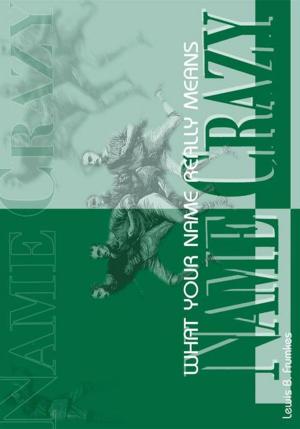| Author: | Brian Kenneth Swain | ISBN: | 9781532071935 |
| Publisher: | iUniverse | Publication: | May 8, 2019 |
| Imprint: | iUniverse | Language: | English |
| Author: | Brian Kenneth Swain |
| ISBN: | 9781532071935 |
| Publisher: | iUniverse |
| Publication: | May 8, 2019 |
| Imprint: | iUniverse |
| Language: | English |
From the author of Sistina, Alone in the Light, and World Hunger The Book of Names is Brian Kenneth Swain’s first collection of short fiction. The stories, characters, and themes explored in this work are as universal as they are diverse: bravery, greed, legacy, and a serious infatuation with horses and French horns. In the title story, one soldier turns hopelessness into a moment of grandeur and sacrifice. In “The Antique Shop,” the proprietor and his customer marvel at the absurdity of debating the provenance and value of a book that cannot possibly exist, despite it being there in the shop with them. And in “Convergence,” two Middle Eastern men share a drink and speak of the inestimable loss each has suffered in a recent terrorist attack, and the terrible secret that binds them together. Swain dissects with candor and immediacy the emotions and motivations of his characters, whether in response to dowsing a well, opening a hamburger shop, working to thwart child abusers, talking a friend off a ledge, or shopping for one’s own casket. The people are instantly recognizable, the fears and joys are boundless, and the language is imbued with empathy, honesty, and humor. The inhabitants of The Book of Names are your neighbors, your friends, your family, possibly even yourself.
From the author of Sistina, Alone in the Light, and World Hunger The Book of Names is Brian Kenneth Swain’s first collection of short fiction. The stories, characters, and themes explored in this work are as universal as they are diverse: bravery, greed, legacy, and a serious infatuation with horses and French horns. In the title story, one soldier turns hopelessness into a moment of grandeur and sacrifice. In “The Antique Shop,” the proprietor and his customer marvel at the absurdity of debating the provenance and value of a book that cannot possibly exist, despite it being there in the shop with them. And in “Convergence,” two Middle Eastern men share a drink and speak of the inestimable loss each has suffered in a recent terrorist attack, and the terrible secret that binds them together. Swain dissects with candor and immediacy the emotions and motivations of his characters, whether in response to dowsing a well, opening a hamburger shop, working to thwart child abusers, talking a friend off a ledge, or shopping for one’s own casket. The people are instantly recognizable, the fears and joys are boundless, and the language is imbued with empathy, honesty, and humor. The inhabitants of The Book of Names are your neighbors, your friends, your family, possibly even yourself.















